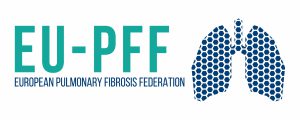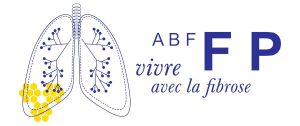Introduction
At Agomab, we have a unique approach: we target pathways that are known to play a big role in fibrosis, such as TGF-β, and are working on developing drug candidates that are designed to only act where they are needed in the body — like the intestines or the lungs. This has the potential to help avoid unnecessary side effects.
With several promising drug candidates in development and a strong research team, we are committed to having a real impact on the lives of people suffering from debilitating chronic diseases.
Our Therapeutic Areas
Fibrostenosing Crohn’s Disease (FSCD)
It is estimated that approximately 46% of patients with Crohn’s disease develop fibrosis of the GI tract, resulting in stricture (stenosis) formation and intestinal obstructions, most frequently in the terminal ileum. These strictures can cause obstructive symptoms such as nausea, vomiting and severe pain after meals, leading to dietary change, malnutrition and surgery. Despite the large unmet medical need, there are no approved pharmacological therapies for FSCD. Surgery is needed in more than 70% of patients with FSCD within their lifetime to correct severe complications such as intestinal obstruction, perforation, fistula and abscess. Despite surgery, the rates of postoperative recurrence are high.
It is estimated that by 2032, approximately 650,000 people in the U.S., Europe and Japan will suffer from FSCD.

Idiopathic Pulmonary Fibrosis (IPF)
The risk for IPF is higher for smokers or people with a family history of IPF, and the risk increases with age. The average onset lies around age 65 years and approximately 70% of patients are male. The causes of IPF remain unknown, although it is thought to result from a combination of genetic and environmental factors.
The most common symptoms of IPF are shortness of breath that worsens over time and a dry cough that does not improve. Additionally, achy joints and muscles, fatigue and unintended weight loss can occur. Some people may not have symptoms at first, but symptoms can develop and worsen as the disease progresses. Many people with IPF also experience what are known as acute exacerbations, referring to a sudden worsening of symptoms. Other complications of IPF include pulmonary hypertension and respiratory failure, when the lungs cannot deliver enough oxygen into the bloodstream without support. This prevents the brain and other organs from getting the oxygen they need.
There is currently no cure for IPF. However, certain treatments may slow the progression of IPF and improves lung function. This may extend the lifespan and improve the quality of life of IPF patients.
IPF affects approximately 240,000 people in the United States, Japan, the United Kingdom, and the four largest European markets (France, Germany, Spain, and Italy), with 30,000 to 40,000 new cases being diagnosed each year in the United States alone.

Our Molecules
Ontunisertib (AGMB-129)
Ontunisertib is an oral pill being developed to potentially help people with Fibrostenosing Crohn’s Disease (FSCD), a severe form of Crohn’s that leads to scarring and narrowing in the intestines.
TGF-β throughout the whole body can cause serious side effects, like heart problems, ontunisertib is specifically designed to work locally, in the gastrointestinal tract. This potentially offers an improved safety profile over systemically acting drugs in this class.
Ontunisertib has been granted U.S. FDA Fast Track Designation. This status may help speed up development and FDA review timelines for ontunisertib.
Ontunisertib is currently being evaluated in a Phase 2a clinical trial in FSCD patients.
AGMB-447
AGMB-447 is a new inhaled investigational treatment under development for people living with Idiopathic Pulmonary Fibrosis (IPF), a serious lung disease that causes stiffening and scarring of the lungs, making it hard to breathe.
AGMB-447 blocks a protein called ALK5, which is part of the TGF-β pathway. TGF-β is known to be a major driver of lung scarring, and by blocking this pathway, the drug aims to slow down or even reverse the buildup of scar tissue in the lungs. AGMB-447 is designed to be directly inhaled into the lungs, where it’s needed, without affecting the rest of the body. This targeted approach may offer a more effective way to treat IPF, while helping to reduce side effects and improve safety.
AGMB-447 has received U.S. FDA Orphan Drug Designation, a status granted by the FDA to promising treatments in development for rare diseases.
AGMB-447 is currently being tested in a Phase 1 study in healthy volunteers and IPF patients.
ALL OF AGOMAB’S PRODUCTS ARE INVESTIGATIONAL. SAFETY AND EFFICACY HAVE NOT BEEN ESTABLISHED BY THE FDA OR OTHER REGULATORY BODIES. TO VIEW OUR POLICY ON COMPASSIONATE USE AND EXPANDED ACCESS, CLICK HERE.
Our Clinical Trials
Agomab is conducting the following clinical trials with our investigational therapies:
Ontunisertib (AGMB-129) in Fibrostenotic Crohn’s Disease
Part A of study completed
An Open-Label, Long Term Extension Study to Assess the Safety of AGMB-129 in Patients with Fibrostenotic Crohn’s Disease
Part B of study ongoing; fully recruited
https://clinicaltrials.gov/study/NCT05843578
https://euclinicaltrials.eu/search-for-clinical-trials/?lang=en&EUCT=2022-502789-26-01
AGMB-447 in Idiopathic Pulmonary Fibrosis
Study ongoing
Expanded Access – Compassionate Use
Sometimes called “compassionate use”, expanded access is a potential pathway for a patient with a serious or immediately life-threatening disease or condition to gain access to an investigational medical product (drug, biologic, or medical device) for treatment outside of clinical trials when no comparable or satisfactory alternative therapy options are available.
Expanded access may be appropriate when all the following apply:
• Patient has a serious or immediately life-threatening disease or condition.
• There is no comparable or satisfactory alternative therapy to diagnose, monitor, or treat the disease or condition.
• Patient enrollment in a clinical trial is not possible.
• Potential patient benefit justifies the potential risks of treatment.
• Providing the investigational medical product will not interfere with investigational trials that could support a medical product’s development or marketing approval for the treatment indication.
Investigational drugs, biologics or medical devices have not yet been approved or cleared by FDA; therefore, their potential risks and benefits are not yet established. Furthermore, the investigational medical product may, or may not, be effective in the treatment of the condition, and use of the product may cause unexpected serious side effects.
As a general policy, Agomab Therapeutics will not provide investigational medicines to patients until a dose and schedule has been established for the agent, preliminary data exists that that investigational drug has some evidence of activity in a particular indication and is found to be safe as a result of a risk-benefit evaluation.
Because its investigational drugs are in preclinical or early clinical development stages, Agomab Therapeutics believes that participation in one of our clinical trials is the most appropriate way to access our investigational therapies. Agomab Therapeutics continues to assess the eligibility requirements and criteria for Expanded Access to its investigational drugs and will re-evaluate this policy from time to time.
Resources
To that aim, we collaborate with patient and academic organizations that raise disease and study awareness and enable better access to trial information for patients.








